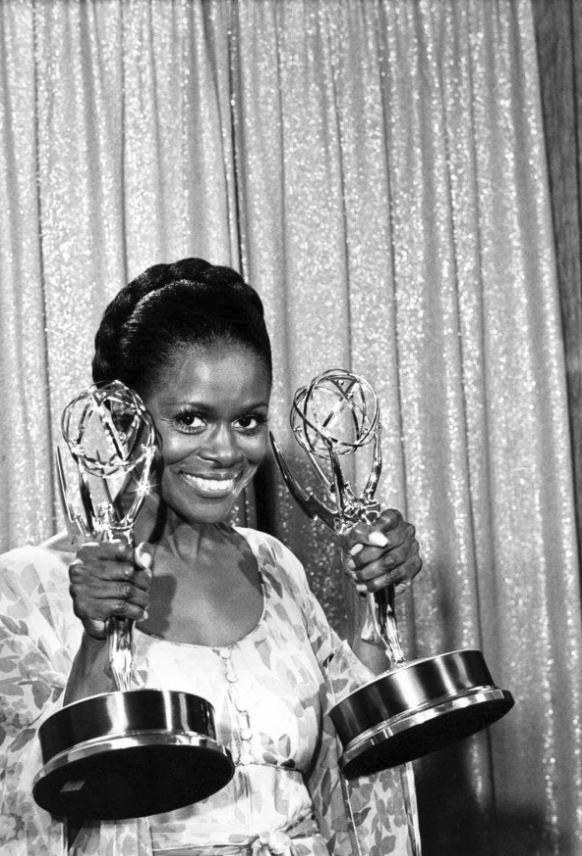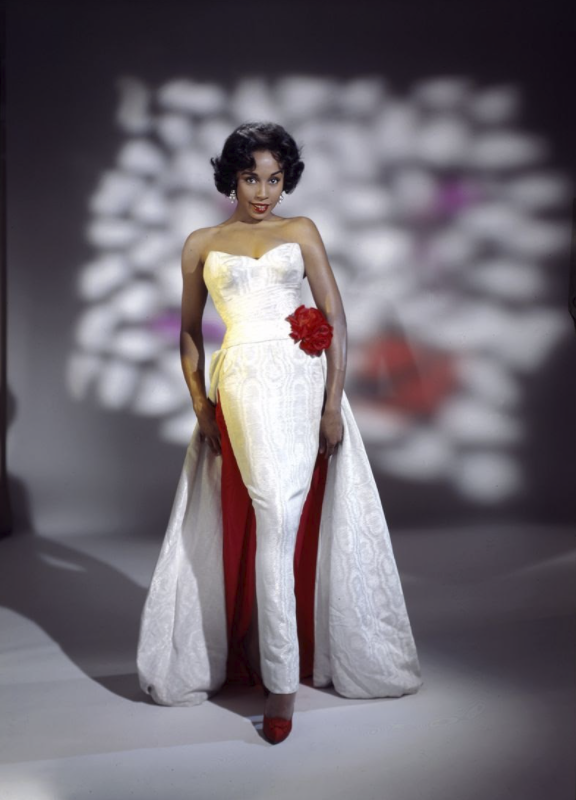Celebrating Black Women in Cinema
Film might be one of the most effective mediums for people to touch our hearts. Here’s to the powerful Black women that have touched ours, and have changed the way Western society viewed them.
BY: PAYAL DASS
Artwork by Payal Dass // THE UNDERGROUND
The month of February has been dedicated to celebrating the achievements and history of African Americans. This month of recognition and awareness is often celebrated by giving credit to the African American communities for their contribution to fields of education, science, culture, public service, political and human rights, and economics. One field that African Americans have contributed greatly to is the arts. This ranges from visual art, music, and film.
It is known that art is one of the strongest ways societies shape their values. Cinema, in particular, is said to have a large impact on the expansion and knowledge of history and culture. Films teach society what they don’t know about different types of people, ultimately changing our perception and ideologies about certain things.
Black women in film have had a big role in changing the stereotypes society and the film industry had previously branded on the Black population. It’s time to celebrate some of the most influential Black women in cinema (in order of birth) that have fought prejudice and proved that race is not a barrier they would allow to hold them back from success.
Hattie McDaniel
Photo Courtesy of MSU Business via Twitter
Hattie McDaniel (June 10, 1895-October 26, 1952) was the first African American to win an Academy Award for her role as Mammy in the 1939 film Gone With the Wind. She was raised in Denver, Colorado, and began showing her love for the performing arts from a young age. She later became one of the first Black women to be broadcast on American radio before the Great Depression, where she found herself doing small jobs. McDaniel later got a regular role on the radio show The Optimistic Do-Nuts where she became the main star named Hi-Hat Hattie. Hi-Hat Hattie was a depiction of a maid who often ‘forgets her place.’
McDaniel made her film debut in 1932 with the film The Golden West, where she played a maid. Her first major role was in John Ford’s Judge Priest released in 1934, in which she got the chance to sing a duet with Will Rogers. McDaniel was known for playing roles of content servants which didn’t sit right with the liberal Black community as it was seen as stereotyping the entire minority. Despite this, her roles and accomplishments have made a huge impact in the Hollywood film industry and have opened doors for many Black artists for the years to come.
Josephine Baker
Photo Courtesy of Vanity Fair Photos
Josephine Baker (June 03, 1906-April 12, 1975) was known for her contribution to dance and the expansion of Black culture. She was often referred to as the symbol of beauty and vitality of African-American cultures, which had a great influence in Paris in the 1920s. She grew up in poverty before joining a dance troupe at the age of 16, which led to performing the chorus in musical comedies on Broadway like Shuffle Along in 1923. She then moved to Paris to continue her blossoming career.
After years of dancing and singing on stage, she made her debut in silent films that became big hits in Europe: Zouzou (1934), Siren of the Tropics (1927), Princesse Tam Tam (1935), and Fausse Alerte (1940). She is also known for refusing to perform in front of segregated audiences and for her work in the Civil Rights Movement. After doing social work in Europe and the United States, she occasionally performed on stage until her passing during the celebration of her 50th anniversary since her Paris debut in 1975. For her time, she played a large role in changing beauty standards, straying away from Caucasian criteria, and giving beauty a broader definition—on a global level.
Dorothy Dandrige
Photo Courtesy of Hollywood-Kodachrome
Dorothy Dandridge (November 9, 1922-September 8, 1965) is known for both her successful career and her tragic ending. However, it is important to remember her as the woman that changed the entire film scene during her time. I personally remember her as my style icon. Dandridge was the first African-American woman to be nominated for an Academy Award for Best Actress for her role in the 1954 film Carmen Jones and sustained a successful acting and singing career over the span of multiple decades. This is a big deal because it shows the industry’s changing attitudes towards Black women.
Dandridge is also recognized for being one of the world’s most celebrated beauties of all time, being the first African-American woman to be on the cover of Life magazine. Dandridge’s performances in film and Broadway made her one of Hollywood’s first African-American sex symbols and earned her positive reviews from both the audience and critics (she has even been compared to Marilyn Monroe). The greatly respected legacy that Dandridge has left behind inspired many actresses and singers like Cicely Tyson, Halle Berry, Janet Jackson, Whitney Houston, and Beyoncé.
Cicely Tyson
Photo Courtesy of HuffPost
Cicely Tyson (December 19, 1924-January 28, 2021) is probably the most notable and successful actress mentioned in this article, and it is important to recognize how she saved film and television from further stereotyping the Black community. Tyson is known for portraying strong African-American women on screen, which helped discard the stereotypes prevalent in the 70s (ultimately propelling the Civil Rights Movement as well). It can be said that her influence on pop-culture helped shine light on the attitude towards equal human rights between races.
Tyson was the first African-American actress to win a Primetime Emmy Award for Outstanding Lead Actress in Television- Miniseries or a Movie for her role in The Autobiography of Miss Jane Pittman that was released in 1974. She won an honorary Academy Award and was inducted into the American Theater Hall of Fame in 2018. In 2020, she was inducted into the Television Hall of Fame before winning a career achievement Peabody Award later that year. Unfortunately, Cicely Tyson passed away last month but has left an extraordinary legacy to her name that continues to inspire girls everywhere.
Photo Courtesy of Stella Fox
Diahann Carroll (July 17, 1935-October 4, 2019) may be a more well-known example for everyone. Carroll was an actress, singer, model, and activist (and also another personal style icon of mine). She was known to have broken down the walls of prejudice during casting in the industry. She was the first African-American actor to get her own sitcom. Carroll’s was titled Julia and ran for 86 episodes from the years 1986-1971. For Julia, she was nominated for an Emmy in 1969 and won a Golden Globe Award in 1968.
Apart from her sitcom, Carroll made several films. Her film debut role was as the best friend of Dorothy Dandridge in Carmen Jones. One of her most notable works is the film Claudine, in which she was nominated for an Academy Award for Best Actress in 1974. Carroll also earned herself a Tony Award for her performance in the musical No Strings in 1962, making her the first Black woman to do so. Carroll has changed the scene for African-Americans in film as she strayed away from playing the role of a domestic servant, showing that there is so much more to a person of colour, a Black citizen, than being on the sidelines for others’ benefits. She changed the way people viewed Black women in society.
Halle Berry
Photo Courtesy of GettyImages
Halle Berry (born August 14, 1966) is a more recent example of a Black woman that has changed the way audiences look at Black women in films. Berry entered the film industry after modeling in pageants, making her screen debut in the 1992 film Boomerang with Eddie Murphy. The role that really fueled Berry’s acting career was her portrayal of Dorothy Dandridge in the 1999 television film Introducing Dorothy Dandridge.This performance earned her multiple awards, including a Primetime Emmy Award and a Golden Globe Award.
Berry’s most notable work is the 2001 film Monster’s Ball with Sean Combs. This is arguably the best performance of her career. This performance was awarded by the National Board of Review and the Screen Actors Guild Award for Best Actress. Her most notable award for this performance was an Academy Award for Best Actress, making her the first Black woman to do so. Berry has now made her directorial debut in films and is passionate about activism on various topics like climate change. She is also always thought of as one of the most beautiful women in the world. Halle Berry has undoubtedly opened doors of hope to all girls who want to make it big but might have been hesitant to do so.
It is my dream to see more strong, ambitious, self-made women rise to the top in an industry that may have its implicit bias towards an artist’s skin colour. The women listed above have inspired more recent stars of all races like Zendaya, Sandra Oh, Keke Palmer, and Lupita Nyong'o. Looking over this list, I hope these women continue to inspire any girl or woman to achieve their dreams. No dream is too big to achieve. More importantly, the colour of your skin is not a barrier holding you back from any type of success. Here’s to some of the greatest Black women I know.






